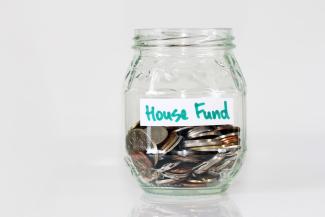
Keep Savings Going From Dry January To Frugal February
I’ll admit I have never been one of the “cool kids” and am always a little behind the latest trends, so I was intrigued when several of my friends were talking about “Dry January.”
A public health campaign introduced by Alcohol Change UK in 2013, Dry January “urges people to refrain from alcohol consumption for the month of January.” The focus is on the health benefits of abstaining from alcohol, but of course, I focus on the potential benefit to your wallet. Regardless of your participation or success with “Dry January,” “Frugal February” is a chance to focus on your financial health.
“Frugal February” is a relatively new concept, and its origins are murky. My guess is that it came about because late January is usually the time credit card bills with the excessive holiday spending come due. “Frugal February” is a way to get your spending back on track. Some people also use it as an incentive to increase the amount they save.
Because there is such a stigma in our society around frugality, let’s start with what it really means. Bankrate.com posted an article by Andy Shuman last month titled “Frugal or cheap; what’s the difference?” It starts with: “Frugal or cheap? The Collins dictionary offers a brief definition of each: Frugal: ‘Economical in the use of money or resources.’ Cheap: ‘If you describe someone as cheap, you are criticizing them for being unwilling to spend money.’” And it concludes with: “A frugal person will try to buy quality stuff but will probably wait for a genuine sale and find a coupon or use cash back (or both) to offset some of the costs. A cheap consumer just buys whatever they can find at the lowest price possible.”
I found an earlier post on Key Bank (key.com) titled, “How to get into the mindset of frugal living,” written in November 2019 by Laura Dorwart. She wrote, “Although the word ‘frugality’ might conjure visions of refusing every single latte and staying at home while your friends go out, it’s more about reclaiming your power over your budget.” She goes on to state, “Frugality can help you discover what you can’t live without—and what you never really cared about to begin with.”
Frugality takes many forms. “Frugal February” is a time to experiment with small changes you can make for a short time. Some simple ideas are to skip expensive coffee stops, pack your lunch or make dinner at home. Here are some other ideas you can try:
Use the food in your refrigerator and pantry. My husband and I could probably buy only milk, eggs and bread for the month of February and survive on our collective horde.
Try for zero food waste. I love the idea of fresh fruits and vegetables, but often misjudge what my eating patterns for the week will be. It’s amazing how much food Americans waste each year. Food waste is estimated to be one-third of our food supply and costs the average household $1,500 each year.
Audit your spending. Many people who come to me for help have no idea where their money goes. A spending audit will help find the leaks in your wallet and help prioritize what expenses bring you joy. Deciding to cut back on one expense will help you refine your most important spending priorities.
There are so many possibilities to try out small changes in your spending. Some might become permanent. “Frugal February” does not have to be about sacrifice. View it more from Dorwart’s perspective, and let “Frugal February” begin with “reclaiming your power over your budget.”

